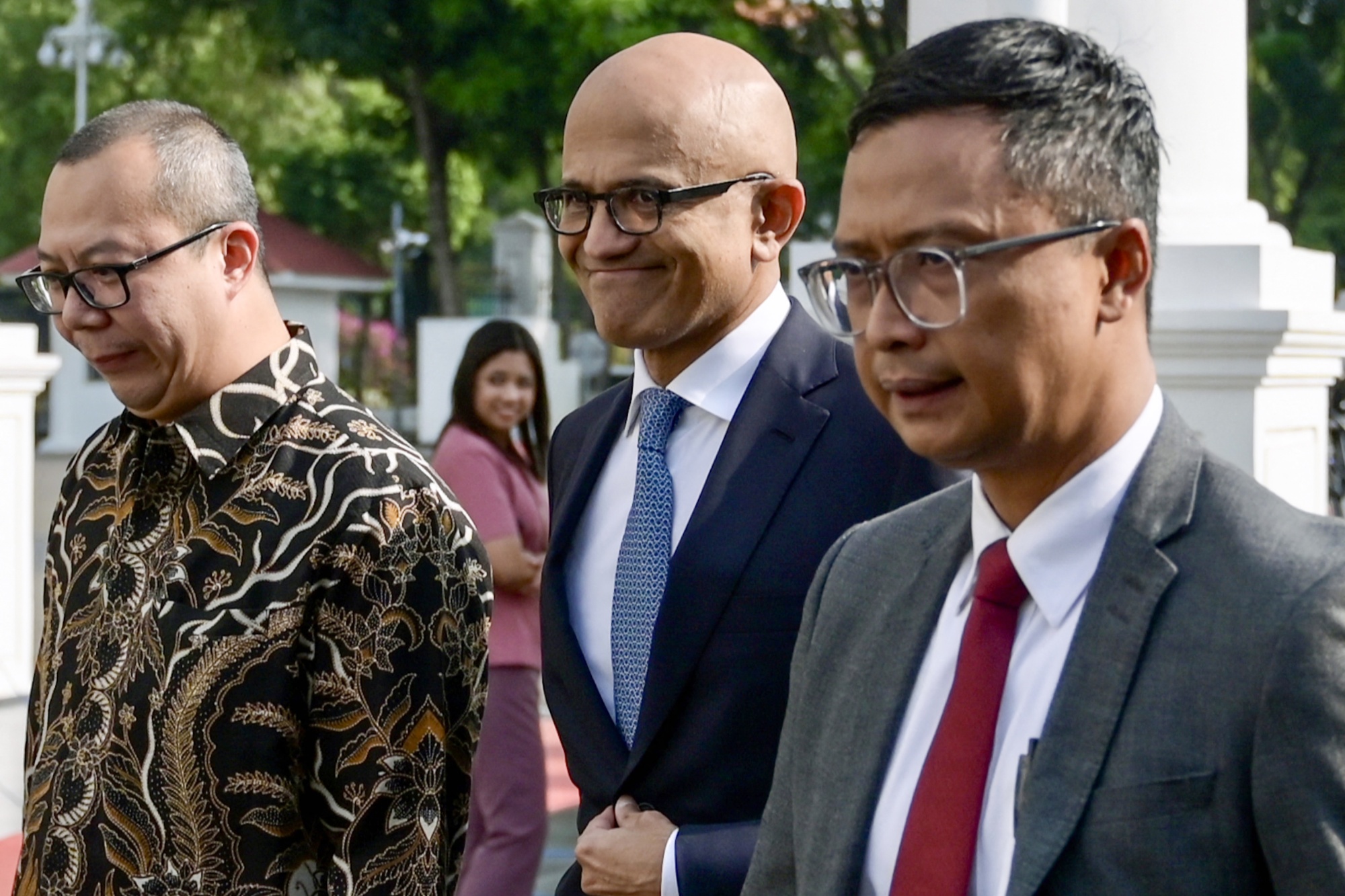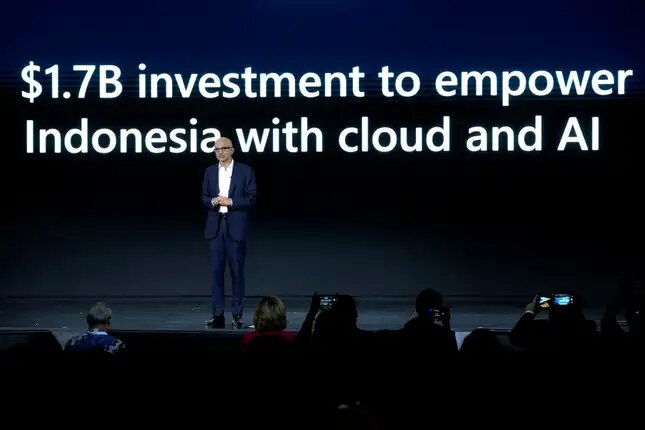Microsoft‘s commitment to Indonesia’s digital future reached new heights as CEO Satya Nadella announced a groundbreaking $1.7 billion investment over the next four years.
This monumental move marks Microsoft’s largest investment in Indonesia since establishing a presence in the country nearly three decades ago.
The focus of Microsoft’s investment extends beyond mere infrastructure development, delving deep into the realms of cloud computing and artificial intelligence (AI).
With its colossal cloud computing infrastructure, Microsoft stands at the forefront of AI integration, exemplified by incorporating an AI-powered chatbot into its renowned search engine, Bing.
This strategic investment aligns with Microsoft’s mission to leverage AI technology to enhance workplace productivity and transform the way people live and work globally.
Nadella, speaking from Jakarta during his tour of Southeast Asia, emphasized the transformative potential of AI in reshaping Indonesia’s socio-economic terrain.

The planned investments span digital infrastructure enhancement, comprehensive skilling initiatives, and robust support for the burgeoning community of tech developers in Indonesia.
Southeast Asia, including Indonesia, emerges as a pivotal market for Microsoft, poised for significant AI-driven growth.
Projections by Kearney suggest that AI adoption could contribute nearly $1 trillion to the region’s GDP by 2030, with Indonesia expected to claim a substantial portion of this economic boost.
Microsoft’s investment pledge encompasses extensive AI training programs benefiting over 840,000 individuals and underscores its commitment to nurturing Indonesia’s tech talent pool.
Indonesia, boasting the third-largest developer community in the Asia-Pacific region, plays a crucial role in Microsoft’s strategic vision. The country’s vibrant tech ecosystem, with over 3.1 million developers actively engaged on platforms like GitHub, positions it as a key player in global software innovation.
President Joko Widodo’s administration has prioritized digital technology and information sectors, aligning with Indonesia’s ambitious Golden Indonesia 2045 Vision.

This visionary roadmap aims to propel Indonesia into the ranks of the world’s top economies, with a projected GDP reaching up to $9 trillion by its centenary independence anniversary.
During his visit to Indonesia, Nadella engaged in discussions with President Widodo, culminating in proposals for establishing an AI research center and a Microsoft data center in strategic locations across the archipelago.
Minister of Communication and Information Technology, Budi Arie Setiadi, disclosed plans for a potential Microsoft data center in Bali or Nusantara, the upcoming capital city on Borneo island.
Nadella’s regional tour, commencing in Indonesia, underscores Microsoft’s enduring commitment to fostering digital innovation and economic growth across Southeast Asia.
The journey continues with stops in Thailand and Malaysia over the coming days, reaffirming Microsoft’s pivotal role in shaping the region’s digital future.
